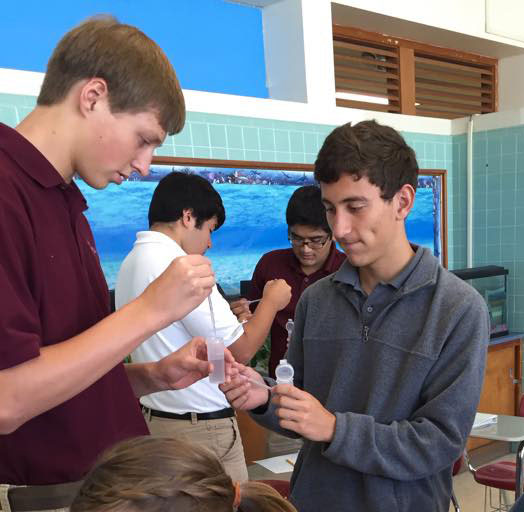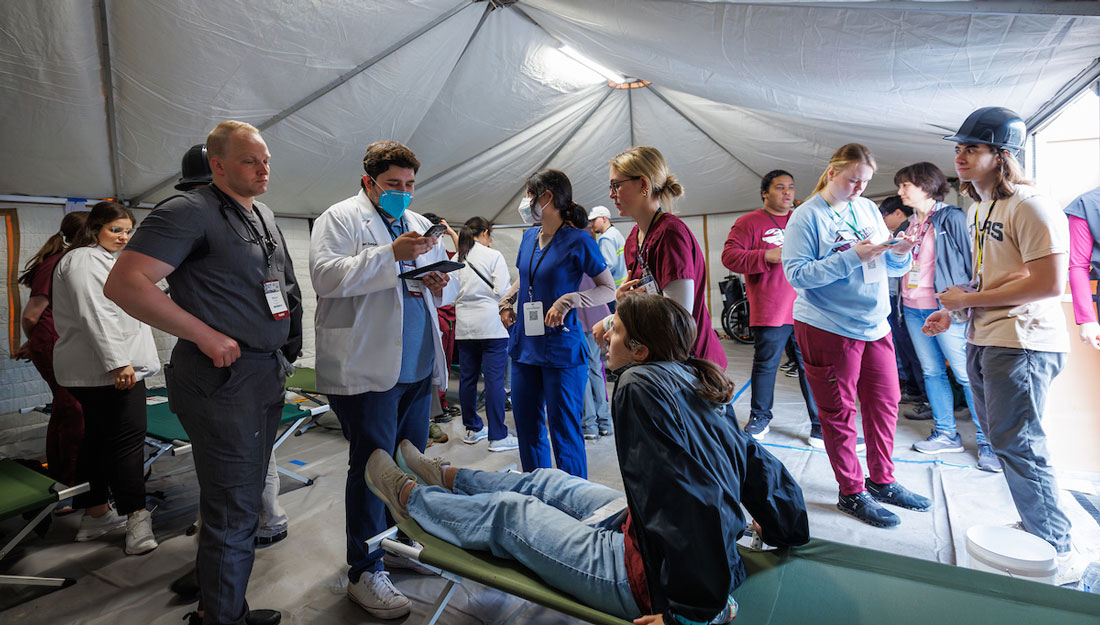South Texas teens get hands-on lesson about Ebola transmission


High school students in South Texas learned first-hand about the transmission of Ebola this week during a simulated disease transmission lab facilitated by the Texas A&M Health Science Center Health Careers Program. Instructors from the program visited Incarnate Word Academy High School in Corpus Christi on Tuesday to discuss the differences between communicable and chronic diseases, how pathogens are spread, facts and myths about Ebola, as well as symptoms, treatment and prevention strategies. Students then got to take part in a disease transmission simulation.
Ebola is spread through bodily fluids (such as saliva, blood and sweat), so each student was given a tube of unknown simulated bodily fluid (water). The students were instructed to transfer liquids into classmates’ test tubes to mock the transmission of Ebola and created a flow chart to track “infected” students down to “patient zero.”
Part of the demonstration included a discussion about the different health professionals involved in infectious disease preparedness and response.
“When most teenagers think about health professionals, they immediately think doctors, nurses, pharmacists,” said Rebecca Smith, one of the program’s instructors. “But there are other very important, rewarding professions, such as epidemiology, public health advising, emergency response, biostatistics, and behavioral and health science that are crucial in a public health emergency.”
The program’s mission is to spark area youth’s interests in health careers, especially career paths that are in high demand in South Texas and across the state. By educating young people about these career paths and getting them interested early, the program positions them to achieve their career goals and also helps to address a growing problem in the South Texas area. An overwhelming number of counties spanning the region have been identified as Health Professional Shortage Areas by the U.S. Department of Health and Human Services, meaning that more health professionals are needed in the region.
By educating young people about the transmission of infectious diseases, the program hopes to instill desirable health behavior – such as washing hands, disinfecting surfaces, covering sneezes and coughs, and not sharing drinks – that can prevent the spread, and hopefully, an outbreak of such diseases at home.
Media contact: media@tamu.edu


